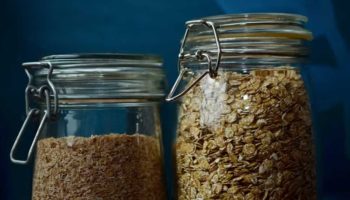1 – Coffee grounds
Coffee grounds are an excellent natural fertilizer for plants. This is because it contains many nutrients such as nitrogen, potassium and phosphorus, which are essential for proper plant growth . In addition, coffee grounds are rich in organic matter, which promotes the formation of a nutrient-rich and fertile soil.
To use coffee grounds as fertilizer, simply collect the used coffee beans and mix them with a little water. It is important to mix everything well so that the nutrients are distributed evenly. Then you need to water your plants with this infusion. You can add the grounds directly into the soil around the plants.
Coffee grounds are a very good natural fertilizer and very effective for plants. Especially for growing tomatoes in your garden, it is an excellent fertilizer. It is easy to prepare and very inexpensive. In addition, it improves soil structure and promotes plant growth.
2 – Banana peel
Banana peel is an excellent natural fertilizer for plants. It contains many essential nutrients, potassium, calcium and magnesium. The same thing happens with the infusion of cut grass. Wood ash fertilizer is very effective.
3 – Eggshells
Eggshells are an excellent natural fertilizer for gardens. They are an important source of calcium, which is necessary for good plant growth. Eggshells can be used fresh or dried. To use them fresh, simply grind them finely and add them to the soil around the plants. To use them dried, finely pulverize them before adding them to the soil. Eggshells promote the growth of microorganisms in the soil, which helps plants feed and grow better.
4 – The infusion of cut grass
An infusion of cut grass is a natural fertilizer that you can prepare yourself. Simply cut a few handfuls of grass and steep it in water for 24 hours. The obtained infusion contains essential nutrients for the plant, nitrate, potassium and phosphorus.
These elements promote the growth of roots, stems and leaves and help resist diseases. In addition, the infusion of grass is rich in chlorophyll, which gives it an intense green hue and helps accelerate photosynthesis.
Before using this fertilizer, it is important to dilute it well to avoid the risk of burning the plants. In general, it is recommended to dilute one part infusion with 10 parts of water. Then you can water your plants with this solution or sprinkle the fertilizer directly around the base of the plant.
5 – The cooking water
Boil water is an excellent natural fertilizer for plants. It contains many essential nutrients for plant growth, potassium, phosphorus and calcium. In addition, cooking water is rich in live microorganisms that help plants absorb nutrients better.
To use potato cooking water as fertilizer, simply catch it after cooking. Then let the water cool and water your plants with it. You can add a few drops of olive oil to help plants absorb nutrients. Regular use of boiling water will naturally fertilize your garden and make for healthier and stronger plants.
6- Compost tea
This mixture revitalizes the life of your soil and brings many benefits to your plants. You will need mature compost to prepare it, but well-rotted leaf mold can also be used. If you don’t have any on hand, you can use a good commercial potting soil. You can pour it directly on the base of the plant without dilution, without fear of possible overdose. However, avoid wetting the leaves of the vegetables you want to harvest.
7 – Nettle fertilizer
Nettle is a plant known for its many health benefits. It is very useful in the garden, as it can be used as a natural fertilizer. In fact, nettle contains many essential nutrients for good plant growth, potassium, phosphorus and calcium. In addition, it helps to improve soil structure and promote growth. To make your nettle fertilizer, all you need to do is harvest a few stalks of this plant and add them to a bucket of water. Let the infusion steep for 24 hours and then use this infusion as a fertilizer to water your plants. You can add a few drops of lavender or lemon essential oil to enhance the fertilizing effect of the fertilizer. It is important to choose the right fertilizer according to the type of plant you want to fertilize.



